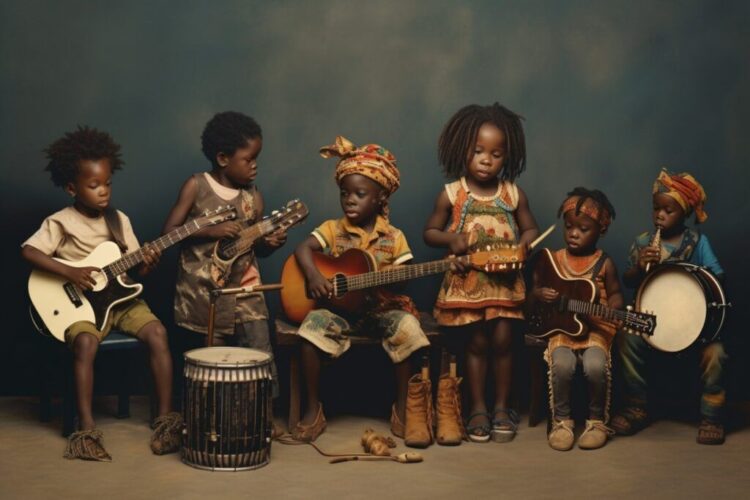To answer the question; how big is the entertainment industry in Nigeria?, first, we need to capture the essence of a sector that has transformed into one of the most influential industries in Africa.
Because over the past few decades, Nigerian entertainment industry has grown from a primarily local endeavor to a global cultural force, earning accolades and driving significant economic impact. From the vibrant beats of Afrobeats to the captivating stories of Nollywood, the Nigerian entertainment industry has captured the imagination of audiences worldwide.
More than just an avenue for cultural expression, the entertainment industry in Nigeria plays a pivotal role in economic growth, job creation, and the nation’s image on the international stage.
The rise of streaming platforms, increasing internet penetration, and a booming youthful population have further propelled its growth. With revenue projections running into billions of dollars and a steady influx of investments, the sector’s influence continues to expand.
In this article, we will explore the size, scope, and significance of Nigeria’s entertainment industry. From its contributions to GDP to its global cultural footprint, we will also discuss the data, trends, and potential that make Nigeria a key player in the world of entertainment.
How Big is the Entertainment Industry in Nigeria?
We’ll answer this question by discussing the following:
1. Economic contributions
The entertainment industry in Nigeria has become a vital component of the country’s economic landscape. In 2023, motion pictures and music recordings contributed approximately ₦154 billion (about $197.6 million) to Nigeria’s Gross Domestic Product (GDP). This substantial contribution underscores the sector’s role in economic diversification and its potential to rival traditional industries like oil and agriculture.
2. Employment generation
Beyond its financial contributions, the entertainment sector is a significant employer. As of 2023, it provided jobs for over 4.2 million Nigerians, with projections indicating the potential to create an additional 2.7 million jobs within the next four to five years. This employment capacity highlights the industry’s role in addressing unemployment and fostering economic development.
3. Revenue growth and projections
The industry’s revenue trajectory has been on an upward climb. A report by the Nigerian Entertainment Conference (NECLive) projected that the entertainment sector would reach an estimated $14.82 billion in revenue by 2025, up from $4 billion in 2013. This growth is attributed to factors such as increased internet accessibility, the proliferation of streaming platforms, and the integration of innovative technologies like Generative AI.
Nollywood
Nigeria’s film industry, popularly known as Nollywood, stands as a testament to the country’s creative prowess. Producing approximately 2,500 films annually, Nollywood has positioned Nigeria as the world’s second-largest film producer. The industry’s evolution from producing and distributing 1,800 films worth $5.1 billion in 2013 to its current state underscores its rapid growth and global appeal.
Afrobeats
The music sector, particularly the Afrobeats genre, has seen Nigerian artists like Burna Boy, Wizkid, and Davido achieve international acclaim. In 2023, Afrobeats recorded 14 billion streams on Spotify, reflecting its global popularity. This international recognition has not only elevated Nigeria’s cultural profile but also attracted significant investments and collaborations with global brands.
Challenges and Opportunities
Despite its successes, the Nigerian entertainment industry faces challenges, including inadequate infrastructure, limited government support, and issues related to intellectual property rights. However, initiatives such as the establishment of film villages and increased private sector investments are steps toward addressing these challenges.
Conclusion
The Nigerian entertainment industry is undeniably a burgeoning sector with immense economic and cultural significance. Its contributions to GDP, employment generation, and global cultural influence underscore its importance. With continued investment, supportive policies, and strategic initiatives, the industry is poised to reach new heights, further solidifying Nigeria’s position on the global entertainment map.




































Discussion about this post